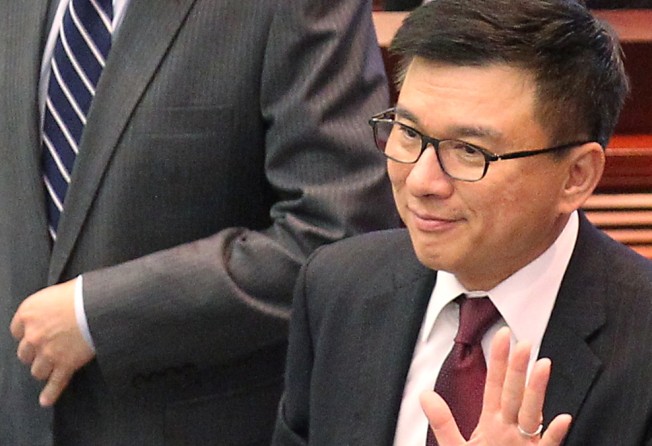Insights of minister for financial services truly - or not - boggle the mind

Hong Kong's minister for financial services and the treasury sees no threat of reckless speculation gripping the local bourse like the mainland stock market despite the volatility seen here in the past two months.Business, May 28
Why should the blind not lead the lame? Why not have a career academic who has never sat at a dealing desk pronounce on the coming trend of share prices? Herewith some of the thoughts of the Secretary for Financial Services, Chan Ka-keung:
"From the risk point of view, the Hong Kong market is still trading at a price-earnings ratio that's relatively low compared to many major advanced markets."
Thank you, sir, for your example of investment analysis made easy - the higher the PE ratio the higher the risk and the lower the PE ratio the lower the risk. I wish I had known this during my previous career as an investment analyst.
I had mistakenly come to the view, you see, that to the extent that there is any relationship between the two, and I never saw much, a higher PE ratio tends to indicate greater confidence in the stock and less prospect of risk. Why didn't I ask Professor Chan?
"The market has not only gone up in the past two months, there have been corrections from time to time."
Here we have rockets and markets confused. It is indeed very rare to find rockets that stop from time to time and retrace their paths on the way from the launch pad to orbit. There is invariably a big bang in the sky when this happens.
But stock markets do it all the time, even in the most overheated of their bull phases. This is the way bull markets move, and does not say there is no froth in the market.
"The major worry is the extreme movements of a few individual stocks."
You don't say, sir. There have certainly been some absolute lulus recently involving listed mainland companies exploding in mid-flight with bigger bangs than any errant rocket. The telemetry already points to faked sales, false loan documentation, faked earnings, insider dealing and a line of other offences.
The problem is that regulation of these stock falls first under the China Securities Regulatory Commission, which is misnamed, as its function is more to boost than to regulate the market.
The CSRC keeps up a show of cooperating with our own Securities and Futures Commission but events suggest that at critical times in policing of the market, the SFC finds the CSRC's doors shut and the blinds pulled over the window.
"I trust the SFC will carry out its duty to check whether there is potential manipulation or other malpractices so as to protect investors."
Yeah, sure, ho-ho-ho, hee-hee-hee.
"This [Hong Kong] market is still dominated by international fund managers while A shares are mainly traded by retail investors."
The assumption here is that in times of crisis big institutional investors will not jump and run as fast as retail investors. My own experience is that they are pretty much alike in a panic and that the retail trade will come back bargain-hunting before the institutions do so.
"If there is no trading, there will be no volatility and no manipulation because there is also no market. Now we have a much higher market turnover and it is natural that we have higher volatility."
What a feat of logical convolution - if there ain't no market then prices can't go up or down.
And I suppose it follows, then, that the greater the market turnover the greater the volatility. Best not invest in the United States, then. It still has the greatest market turnover of anywhere in the world. Best buy the Cambodian stock market. Not much turnover there. It's bound to have stable prices.
Off you go, professor. Phnom Penh is that-a-way.